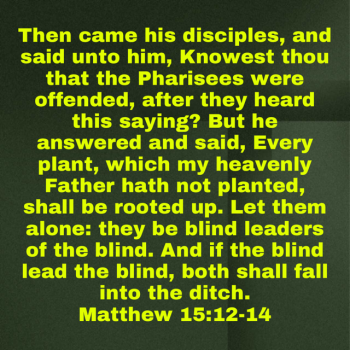3
Here’s the Greek rendering:
“If they will declare, let them draw nigh, that they may know together, who has caused these things to be heard from the beginning: then was it told you. I am God, and there is not another beside me; [he who is the] Righteous One and [the] Savior (Dikaios kai Soter); there is none but me. Turn to me, and you shall be saved, you that [come] from the end of the earth: I am God (ego eimi ho Theos), and there is none other.”
Now compare this with what Peter wrote:
“… To those who have obtained like precious faith with us by the righteousness of our God and Savior Jesus Christ (en dikaiosyne tou Theou hemon kai Soteros, ‘Iesou Christou).” NKJV
This shows that for Peter, Jesus is the righteous God and Savior who summons all the ends of the earth to look to him for salvation.
Interestingly, Christ is even called the Righteous/Just One by Peter and others, which, as we saw, is a title attributed to Jehovah in the Greek version of Isaiah:
“When Peter saw it, he answered the people: ‘Men of Israel, why do you marvel at this man? Or why do you stare at us, as if by our own power or piety we had made him walk? The God of Abraham and Isaac and Jacob, the God of our fathers, has glorified His Son Jesus, whom you handed over and denied in the presence of Pilate, when he had decided to release Him. You denied the Holy and Righteous One (ton Hagion kai Dikaion) and asked for a murderer to be granted to you, and you killed the Creator of Life, whom God has raised from the dead, of which we are witnesses.” Acts 3:12-15 Modern English Version (MEV)
Note how the Apostle describes Christ as the Creator of life who was killed but then resurrected. And:
“Which of the prophets have not your fathers persecuted? and they have slain them which shewed before of the coming of the Just One (tou Dikaiou); of whom ye have been now the betrayers and murderers:” Acts 7:52
“And he said, The God of our fathers hath chosen thee, that thou shouldest know his will, and see that Just One (ton Dikaion), and shouldest hear the voice of his mouth.” Acts 22:14
The above citations make it crystal clear that the inspired Apostle did indeed refer to his risen Lord as the God of all true believers.
And now to my final example:
“For there are certain men who crept in secretly, even those who were long ago written about for this condemnation: ungodly men, turning the grace of our God into indecency, and denying our only Master, God, and Lord, Jesus Christ (ton monon despoten Theon, kai Kyrion hemon ‘Iesoun Christon).” Jude 1:4 World English Bible (WEB)
This, too, is a Granville Sharp construction, and is therefore another instance where Jesus is said to be God. However, there is a variant reading in the extant copies of this verse, where the word for God doesn’t appear in some of the manuscripts. The following version reflects this fact:
“… and deny Jesus Christ our only Sovereign and Lord (ton monon Despoten kai Kyrion hemon ‘Iesoun Christon).” New International Version (NIV)
Instead of identifying Jesus as our only Master, God and Lord, the risen Christ is said to be the believers’ one and only Sovereign Lord. And yet either reading still leaves us with Jude declaring Jesus to be truly divine, since the words Despotes and Kyrios are ascribed to Jehovah God in the Greek version of the Hebrew Bible.
“Therefore thus says the Lord, the Lord of hosts (Κyrios ho Despotes sabaoth), Woe to the mighty [men] of Israel; for my wrath shall not cease against mine adversaries, and I will execute judgment on mine enemies.” Isaiah 1:24 LXX
“Behold now, the Lord, the Lord of hosts (ho Despotes Kyrios sabaoth), will take away from Jerusalem and from Judea the mighty man and mighty woman, the strength of bread, and the strength of water,” Isaiah 3:1 LXX
In fact, the Greek translation even applies the words Kyrios monos to Jehovah:
“And Esdras said,You are the only Lord (Kyrios monos); you made the heaven, and the heaven of heavens, and all their array, the earth, and all things that are in it, the seas, and all things in them; and you give life all things, and the hosts of heaven worship you.” Nehemiah 9:6 LXX
Kyrios monos is the Greek rendering of the Hebrew YHVH labaddeka, i.e., “Jehovah alone”. Hence, for a Greek-speaking Jew like Jude to confess someone as their only Lord is to identify that One as Jehovah since Jehovah is the only Lord that a true believer can ever profess and look to, especially in heaven.
And yet, according to Jude, it is the risen Christ who sits enthroned in heaven that is the believers’ monos Kyrios, which means the exact same thing that Kyrios monos does. Jude has essentially described Jesus as the Jehovah God of the Hebrew Scriptures, a fact confirmed by what this inspired writer states in the next verse:
“Now I desire to remind you (even though you have been fully informed of these facts once for all) that JESUS (ho ‘Iesous), having saved the people out of the land of Egypt, later destroyed those who did not believe.” Jude 1:5 NET
Jesus is said to be the One who delivered Israel during the time of Moses and subsequently punished them in the wilderness for their disobedience. One could not ask for a more emphatic witness to Christ’s prehuman existence as Jehovah God!(1)
As the NET Bible’s notes explain:
tc Most later witnesses (P Ψ 5 88 1175 1611 1735 2492 M sy) have θεόν (theon, “God”) after δεσπότην (despotēn, “master”), which appears to be a motivated reading in that it explicitly links “Master” to “God” in keeping with the normal NT pattern (see Luke 2:29; Acts 4:24; 2 Tim 2:21; Rev 6:10). In patristic Greek, δεσπότης (despotēs) was used especially of God (cf. BDAG 220 s.v. 1.b.). The earlier and better witnesses (P א A B C 0251 33 81 323 436 442 1241 1243 1739 2344 al co) lack θεόν; the shorter reading is thus preferred on both internal and external grounds.
sn The construction our Master and Lord, Jesus Christ in v. 4 follows Granville Sharp’s rule (see note on Lord). The construction STRONGLY IMPLIES the deity of Christ. This is followed by a statement that Jesus was involved in the salvation (and later judgment) of the Hebrews. He is thus to be IDENTIFIED WITH THE LORD GOD, YAHWEH. Verse 5, then, simply fleshes out what is implicit in v. 4.
tc The reading ᾿Ιησοῦς (Iēsous, “Jesus”) is deemed too hard by several scholars, since it involves the notion of Jesus acting in the early history of the nation Israel (the NA has “the Lord” instead of “Jesus”). However, not only does this reading enjoy the strongest support from A VARIETY OF EARLY WITNESSES (e.g., A B 33 81 88 322 424 665 915 1241 (1735: “the Lord Jesus”) 1739 1881 2298 2344 vg co eth Or Cyr Hier Bede), but the plethora of variants demonstrate that scribes were uncomfortable with it, for they seemed to exchange κύριος (kurios, “Lord”) or θεός (theos, “God”) for ᾿Ιησοῦς (though P has the intriguing reading θεὸς Χριστός [theos Christos, “God Christ”] for ᾿Ιησοῦς). As difficult as the reading ᾿Ιησοῦς is, in light of v. 4 and in light of the progress of revelation (Jude being one of the last books in the NT to be composed), it is wholly appropriate. The NA text now also reads Ιησοῦς. For defense of this reading, see Philipp Bartholomä, “Did Jesus Save the People out of Egypt: A Re-examination of a Textual Problem in Jude 5, ” NovT 50 (2008): 143-58. (NET Bible
Jude 1; capital and underline emphasis mine)
Continue





